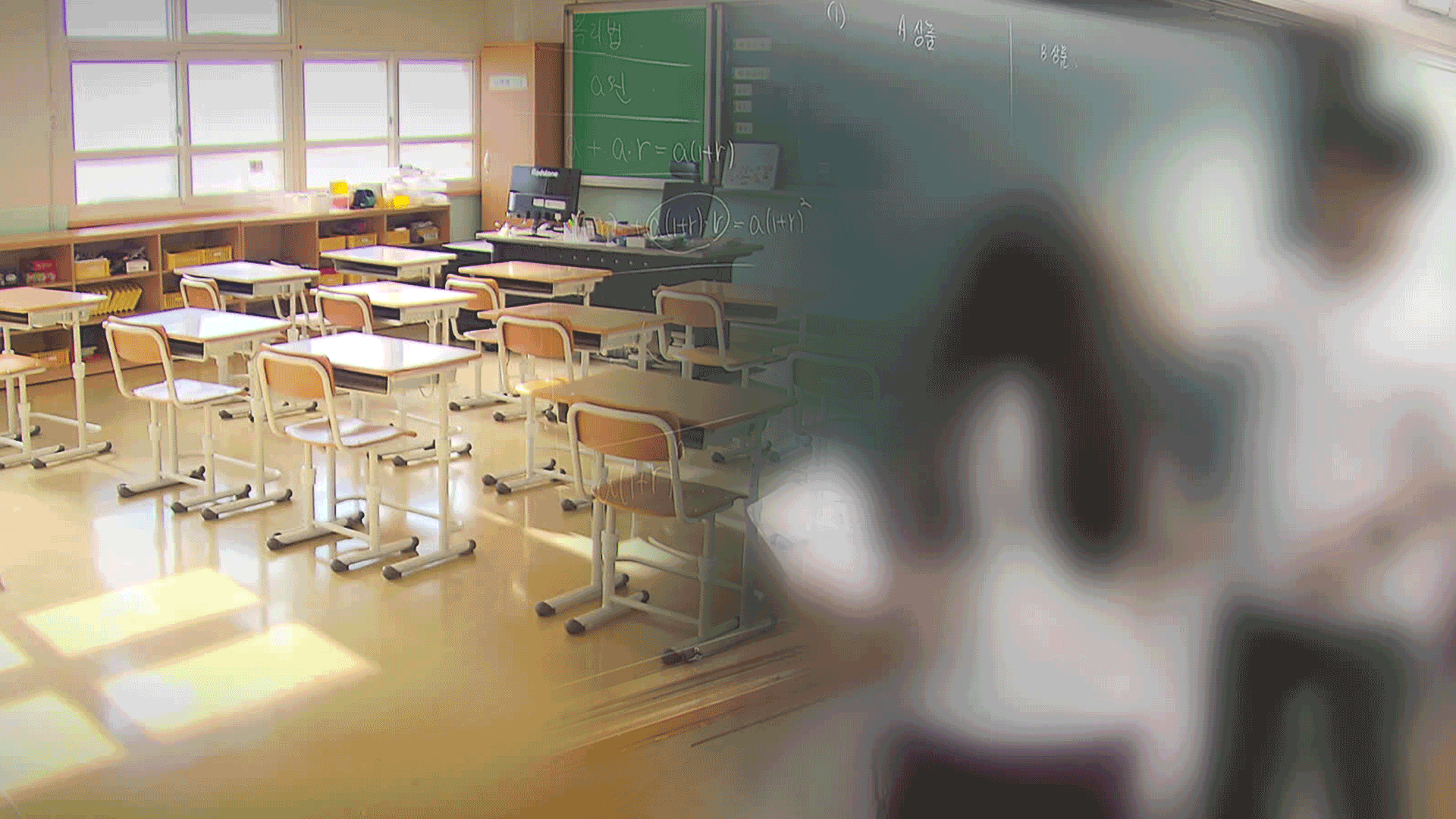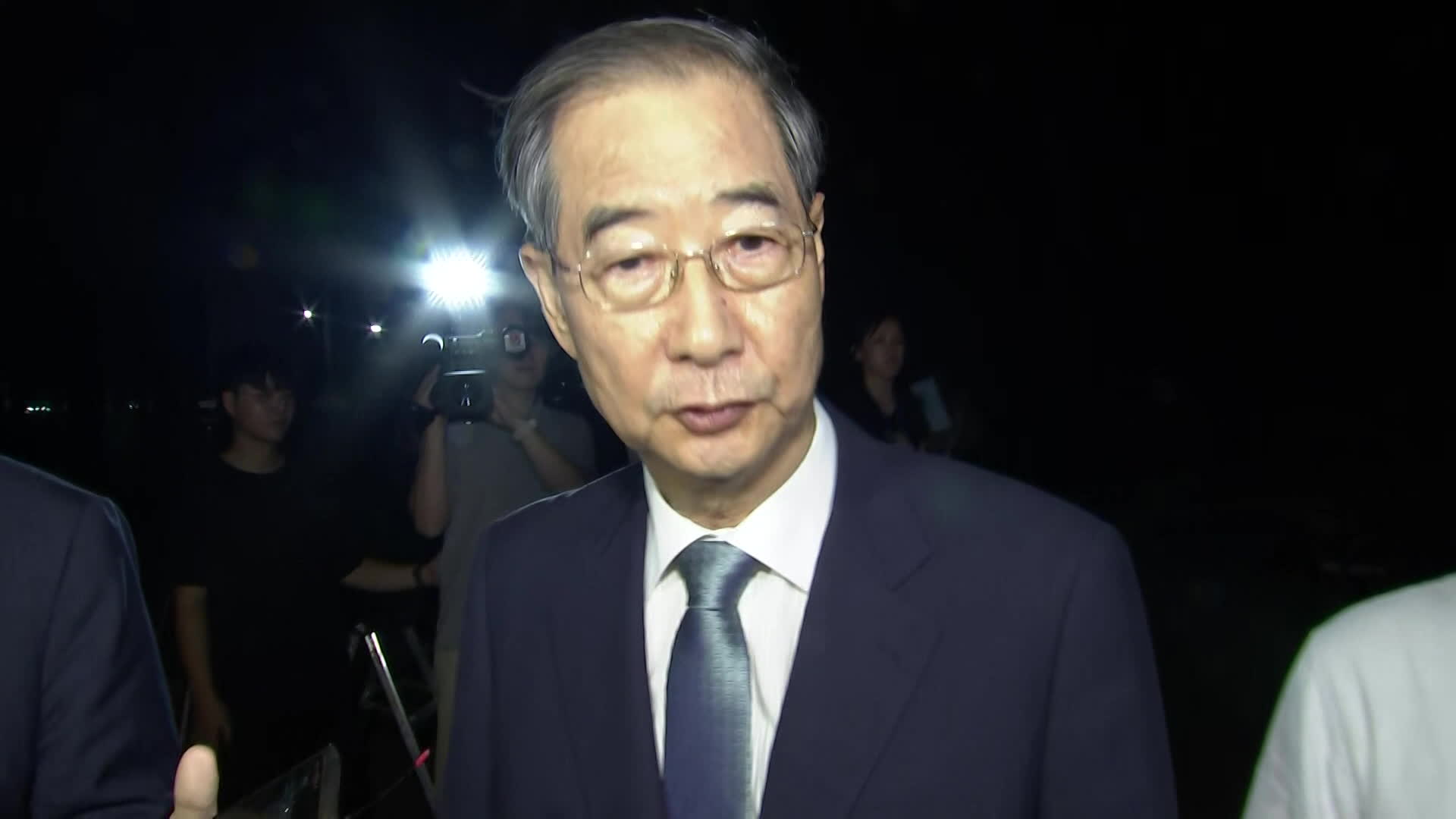Low birth rates lead to teacher cuts
입력 2025.08.20 (03:34)
읽어주기 기능은 크롬기반의
브라우저에서만 사용하실 수 있습니다.
[Anchor]
As the impact of low birth rates leads to more school closures, the government is proceeding with reductions in the number of teachers.
However, there are opposing voices not only from teacher organizations but also from local education offices.
Reporter Go Ah-reum reports on the reasons behind this.
[Report]
The effects of low birth rates first hit schools in rural areas.
This year, 49 schools across the country are closing, and there are 182 elementary schools with no new students.
Although the total number of students has just surpassed 5 million this year, it is projected to decrease by nearly 800,000 in four years.
The Ministry of Education has also reduced the number of public school teachers by 1.8% this year, following a 1.3% reduction in 2023 and a 1.6% reduction last year, totaling over 4,800 teachers.
Recently, with the announcement of further reductions for next year, there has been public backlash from local education offices.
[Lee Sang-soo/Director of Education Policy at Seoul Metropolitan Office of Education: "If we reduce the number of teachers in advance to prepare for the decrease in student numbers, it will result in current students not receiving quality education..."]
Teacher organizations are also opposing the reduction of teachers, arguing that it will lower the quality of education.
They point out that nearly 2 out of 10 classes are still overcrowded, indicating that there is not an excess of teachers.
Choi Kyo-jin, the nominee for Minister of Education, has opposed teacher reductions during his tenure as the superintendent of education in Sejong City.
He was the first in the country to set the number of students per class for grades 1 and 2 in elementary schools to be below 20.
[Choi Kyo-jin/Minister of Education nominee/March 2022: "(Having fewer than 20 students per class) is an issue that should naturally be pursued in terms of children's health and basic academic skills..."]
There is also a widely held view that reducing teacher numbers in response to low birth rates is an unavoidable policy direction.
An important task lies ahead for the newly appointed head of education.
This is KBS News, Go Ah-reum.
As the impact of low birth rates leads to more school closures, the government is proceeding with reductions in the number of teachers.
However, there are opposing voices not only from teacher organizations but also from local education offices.
Reporter Go Ah-reum reports on the reasons behind this.
[Report]
The effects of low birth rates first hit schools in rural areas.
This year, 49 schools across the country are closing, and there are 182 elementary schools with no new students.
Although the total number of students has just surpassed 5 million this year, it is projected to decrease by nearly 800,000 in four years.
The Ministry of Education has also reduced the number of public school teachers by 1.8% this year, following a 1.3% reduction in 2023 and a 1.6% reduction last year, totaling over 4,800 teachers.
Recently, with the announcement of further reductions for next year, there has been public backlash from local education offices.
[Lee Sang-soo/Director of Education Policy at Seoul Metropolitan Office of Education: "If we reduce the number of teachers in advance to prepare for the decrease in student numbers, it will result in current students not receiving quality education..."]
Teacher organizations are also opposing the reduction of teachers, arguing that it will lower the quality of education.
They point out that nearly 2 out of 10 classes are still overcrowded, indicating that there is not an excess of teachers.
Choi Kyo-jin, the nominee for Minister of Education, has opposed teacher reductions during his tenure as the superintendent of education in Sejong City.
He was the first in the country to set the number of students per class for grades 1 and 2 in elementary schools to be below 20.
[Choi Kyo-jin/Minister of Education nominee/March 2022: "(Having fewer than 20 students per class) is an issue that should naturally be pursued in terms of children's health and basic academic skills..."]
There is also a widely held view that reducing teacher numbers in response to low birth rates is an unavoidable policy direction.
An important task lies ahead for the newly appointed head of education.
This is KBS News, Go Ah-reum.
■ 제보하기
▷ 카카오톡 : 'KBS제보' 검색, 채널 추가
▷ 전화 : 02-781-1234, 4444
▷ 이메일 : kbs1234@kbs.co.kr
▷ 유튜브, 네이버, 카카오에서도 KBS뉴스를 구독해주세요!
- Low birth rates lead to teacher cuts
-
- 입력 2025-08-20 03:34:44

[Anchor]
As the impact of low birth rates leads to more school closures, the government is proceeding with reductions in the number of teachers.
However, there are opposing voices not only from teacher organizations but also from local education offices.
Reporter Go Ah-reum reports on the reasons behind this.
[Report]
The effects of low birth rates first hit schools in rural areas.
This year, 49 schools across the country are closing, and there are 182 elementary schools with no new students.
Although the total number of students has just surpassed 5 million this year, it is projected to decrease by nearly 800,000 in four years.
The Ministry of Education has also reduced the number of public school teachers by 1.8% this year, following a 1.3% reduction in 2023 and a 1.6% reduction last year, totaling over 4,800 teachers.
Recently, with the announcement of further reductions for next year, there has been public backlash from local education offices.
[Lee Sang-soo/Director of Education Policy at Seoul Metropolitan Office of Education: "If we reduce the number of teachers in advance to prepare for the decrease in student numbers, it will result in current students not receiving quality education..."]
Teacher organizations are also opposing the reduction of teachers, arguing that it will lower the quality of education.
They point out that nearly 2 out of 10 classes are still overcrowded, indicating that there is not an excess of teachers.
Choi Kyo-jin, the nominee for Minister of Education, has opposed teacher reductions during his tenure as the superintendent of education in Sejong City.
He was the first in the country to set the number of students per class for grades 1 and 2 in elementary schools to be below 20.
[Choi Kyo-jin/Minister of Education nominee/March 2022: "(Having fewer than 20 students per class) is an issue that should naturally be pursued in terms of children's health and basic academic skills..."]
There is also a widely held view that reducing teacher numbers in response to low birth rates is an unavoidable policy direction.
An important task lies ahead for the newly appointed head of education.
This is KBS News, Go Ah-reum.
As the impact of low birth rates leads to more school closures, the government is proceeding with reductions in the number of teachers.
However, there are opposing voices not only from teacher organizations but also from local education offices.
Reporter Go Ah-reum reports on the reasons behind this.
[Report]
The effects of low birth rates first hit schools in rural areas.
This year, 49 schools across the country are closing, and there are 182 elementary schools with no new students.
Although the total number of students has just surpassed 5 million this year, it is projected to decrease by nearly 800,000 in four years.
The Ministry of Education has also reduced the number of public school teachers by 1.8% this year, following a 1.3% reduction in 2023 and a 1.6% reduction last year, totaling over 4,800 teachers.
Recently, with the announcement of further reductions for next year, there has been public backlash from local education offices.
[Lee Sang-soo/Director of Education Policy at Seoul Metropolitan Office of Education: "If we reduce the number of teachers in advance to prepare for the decrease in student numbers, it will result in current students not receiving quality education..."]
Teacher organizations are also opposing the reduction of teachers, arguing that it will lower the quality of education.
They point out that nearly 2 out of 10 classes are still overcrowded, indicating that there is not an excess of teachers.
Choi Kyo-jin, the nominee for Minister of Education, has opposed teacher reductions during his tenure as the superintendent of education in Sejong City.
He was the first in the country to set the number of students per class for grades 1 and 2 in elementary schools to be below 20.
[Choi Kyo-jin/Minister of Education nominee/March 2022: "(Having fewer than 20 students per class) is an issue that should naturally be pursued in terms of children's health and basic academic skills..."]
There is also a widely held view that reducing teacher numbers in response to low birth rates is an unavoidable policy direction.
An important task lies ahead for the newly appointed head of education.
This is KBS News, Go Ah-reum.
-
-

고아름 기자 areum@kbs.co.kr
고아름 기자의 기사 모음
-
이 기사가 좋으셨다면
-
좋아요
0
-
응원해요
0
-
후속 원해요
0











![[단독] 특검, 김건희 최측근 ‘황금폰’ 확보…“한강공원서 부수고 쓰레기통에 던져”](/data/layer/904/2025/08/20250820_vUV5lp.png)



이 기사에 대한 의견을 남겨주세요.